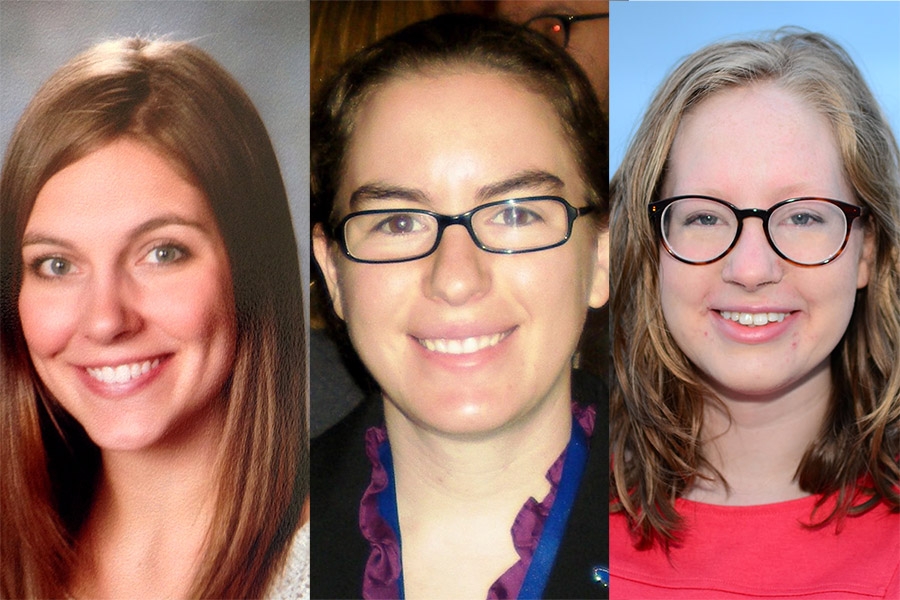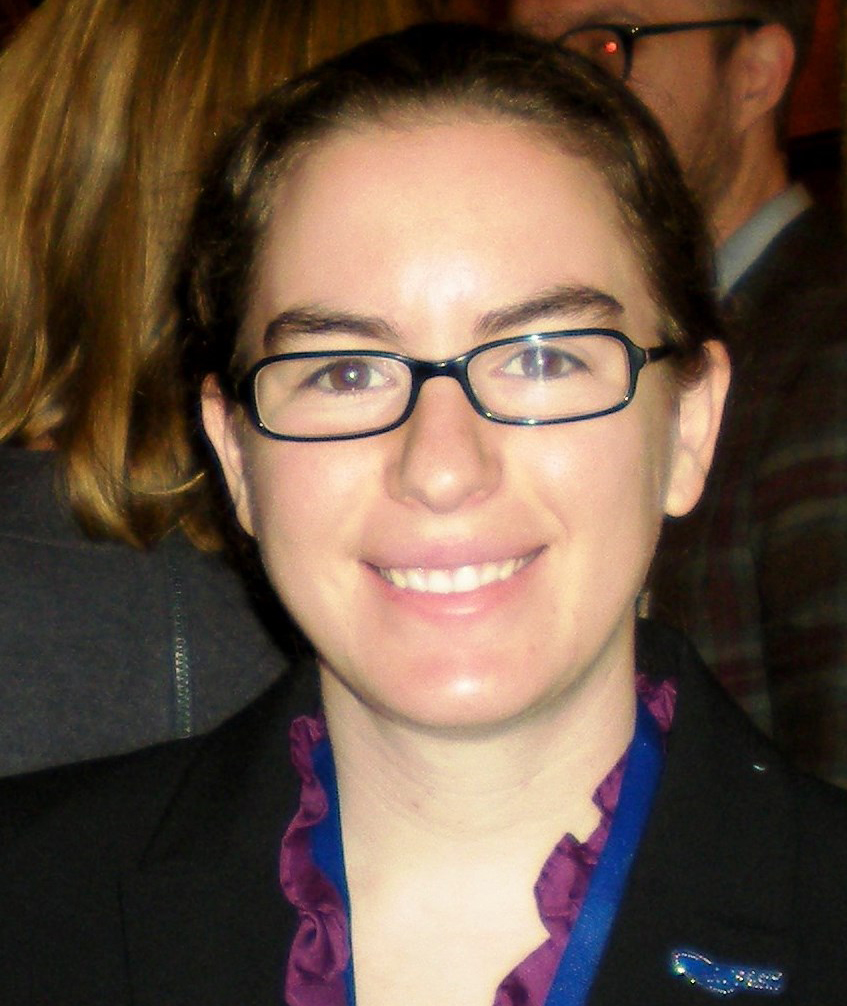
Three School of Civil and Environmental Engineering graduate students are among this year’s group of ARCS Scholars.
 Bates |
 Nadelman |
 Skipper |
Elizabeth Nadelman won her third year of support from the Achievement Rewards for College Scientists program. Josephine Bates is a two-time ARCS Scholar, and Anna Skipper received the scholarship for the first time.
“I was really surprised and humbled to win the scholarship — I mean, Neil deGrasse Tyson won this scholarship back when he was getting his Ph.D., so those are pretty big shoes to fill,” said Skipper, a first-year doctoral student who’s also finishing her master’s degree. “But I'm really excited. It's always nice to have extra money for traveling to additional conferences or buying new equipment, or just to buy textbooks and ease your mind about paying for expenses every month.”
The scholarships recognize doctoral students “who have a record of past achievement and who show exceptional promise of making a significant contribution to the worldwide advancement of science and technology,” according to award materials. A Georgia Tech committee selects winners to be supported by the ARCS Foundation Atlanta.
Bates, in her third year of Ph.D. work, focuses on air quality and its impacts on human health. She studies reactive oxygen species and how they contribute to the adverse health effects of particulate matter in the air. Her model for these species has generated data that Emory University researchers used in health studies.
Bates said that work is showing promising results, and now she is refining the models.
“The models give us estimates over a 12 kilometer by 12 kilometer grid, and I am using those estimates, other models, and observation data to get concentrations on a 250 meter by 250 meter grid. This creates finer spatial resolution air quality data for finer resolution health data, and the health impact analysis can be done on a neighborhood-by-neighborhood basis rather than over a large area, like half of a city.”
Nadelman is entering her fifth year of doctoral studies, studying techniques to make concrete mixtures that are highly durable while also being highly sustainable. Her research focuses on concretes made with “green” limestone cements.
Skipper has been investigating the behavior of a tiny alpine crustacean called a copepod for her master’s. She said she will expand that work for her Ph.D. to look at the biomechanics of other copepods and zooplankton.
